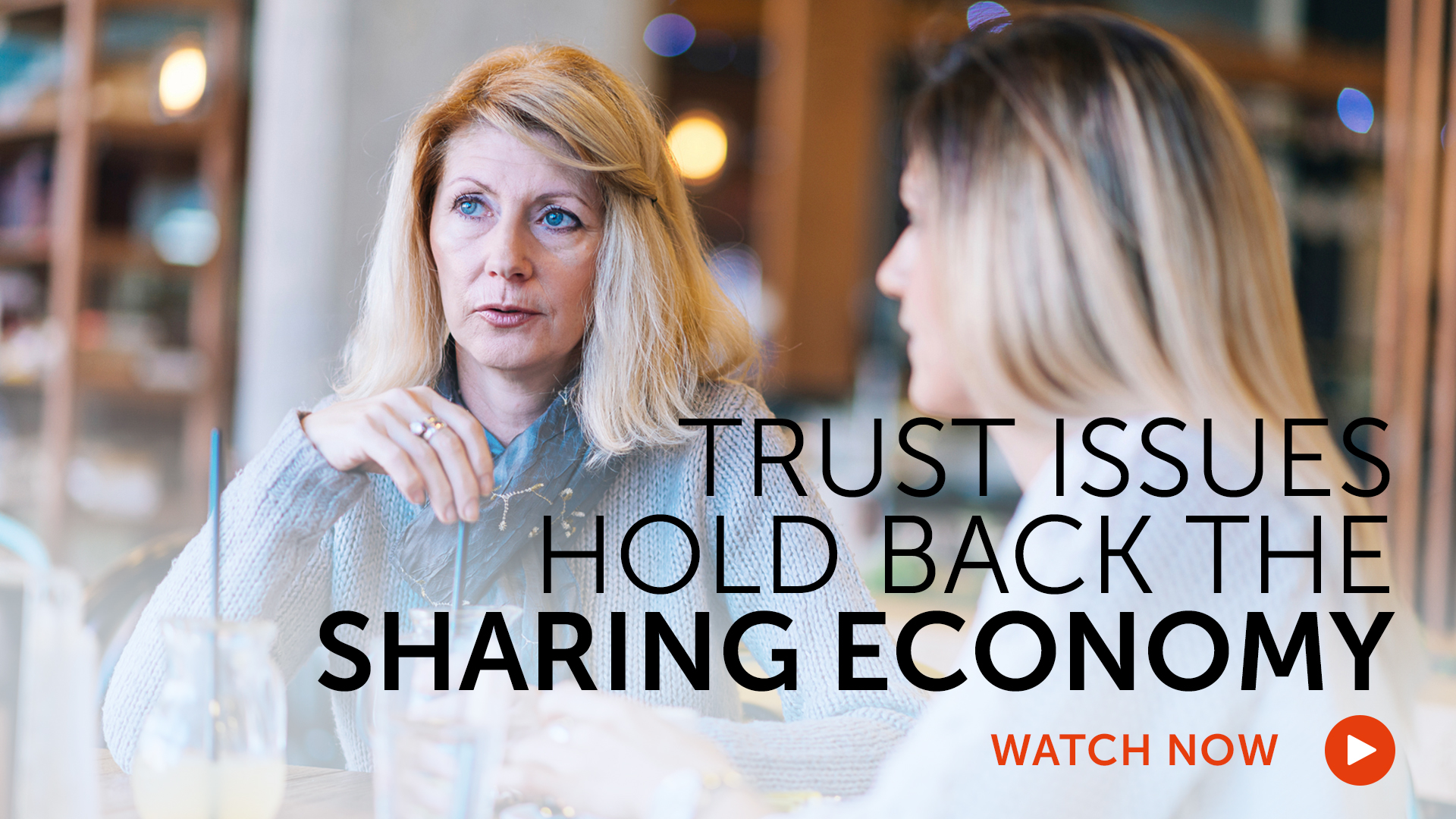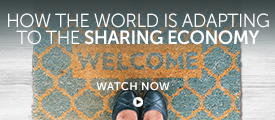New research shows that the Sharing Economy in the UK is being held back because of a lack of trust and understanding. A survey by Trust Pilot found that 29% of people have previously avoided using a sharing economy platform because of a lack of clarity on who would hold responsibility when something goes wrong. The survey also found that 42% of people would usually wait until a friend or family member has used a sharing economy scheme before using it themselves.
In these videos our experts discuss the impact of the sharing economy in hospitality:
A separate survey by Veridu also found similar results. The survey states that ‘A lack of understanding of the Sharing Economy in the UK is impacting growth with 41% of respondents citing this as a reason for not participating.’ Other reasons given for avoiding participation were unwillingness to share possessions with strangers (41%), concerns for personal safety (34%), and worries that possessions would be damaged (29%).
Some Sharing Economy business have grown faster than others, and Airbnb is a clear success story, although it still has hurdles to overcome. Trust Pilot’s survey found that 58% of respondents had used property rental sharing economy services (e.g. Airbnb) whereas only 28% of people has used private car loan services or car sharing schemes (e.g. Zipcar).
With word of mouth remaining such a strong driver of growth, trust is sure to keep growing over time and emerging Sharing Economy business will continue to present competition to more traditional business.
If you’ve been sent to this page and you’re not yet on the circulation list to receive these regular briefings and you would like to sign up, you can do see here. It’s free.
Video clips produced by ybc.tv for the Hospitality Channel, including interview from industry conferences such as the IHIF conference as well as specific Hospitality Channel shoots.


